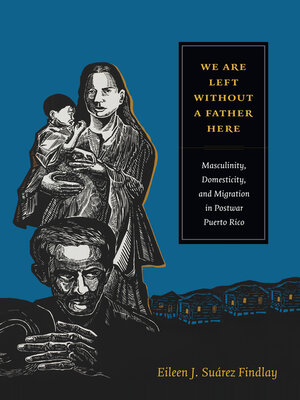We Are Left without a Father Here
ebook ∣ Masculinity, Domesticity, and Migration in Postwar Puerto Rico · American Encounters/Global Interactions
By Eileen J. Suárez Findlay

Sign up to save your library
With an OverDrive account, you can save your favorite libraries for at-a-glance information about availability. Find out more about OverDrive accounts.
Find this title in Libby, the library reading app by OverDrive.



Search for a digital library with this title
Title found at these libraries:
| Library Name | Distance |
|---|---|
| Loading... |
We Are Left without a Father Here is a transnational history of working people's struggles and a gendered analysis of populism and colonialism in mid-twentieth-century Puerto Rico. At its core are the thousands of agricultural workers who, at the behest of the Puerto Rican government, migrated to Michigan in 1950 to work in the state's sugar beet fields. The men expected to earn enough income to finally become successful breadwinners and fathers. To their dismay, the men encountered abysmal working conditions and pay. The migrant workers in Michigan and their wives in Puerto Rico soon exploded in protest. Chronicling the protests, the surprising alliances that they created, and the Puerto Rican government's response, Eileen J. Suárez Findlay explains that notions of fatherhood and domesticity were central to Puerto Rican populist politics. Patriarchal ideals shaped citizens' understandings of themselves, their relationship to Puerto Rican leaders and the state, as well as the meanings they ascribed to U.S. colonialism. Findlay argues that the motivations and strategies for transnational labor migrations, colonial policies, and worker solidarities are all deeply gendered.







